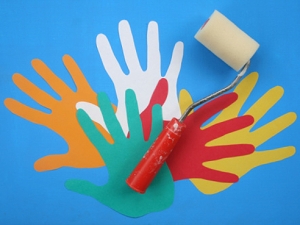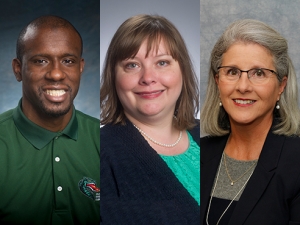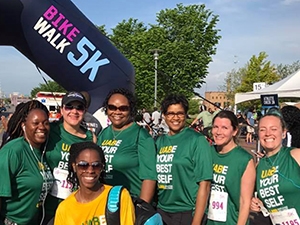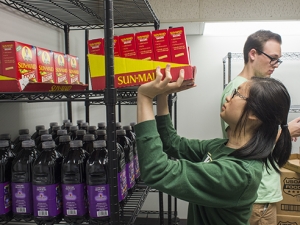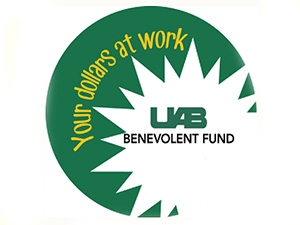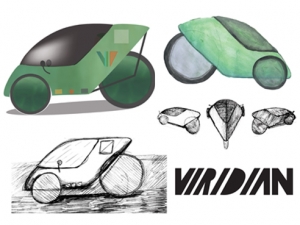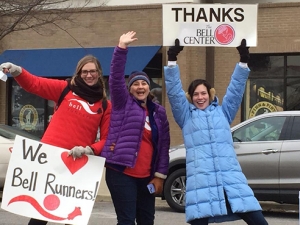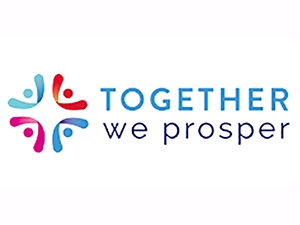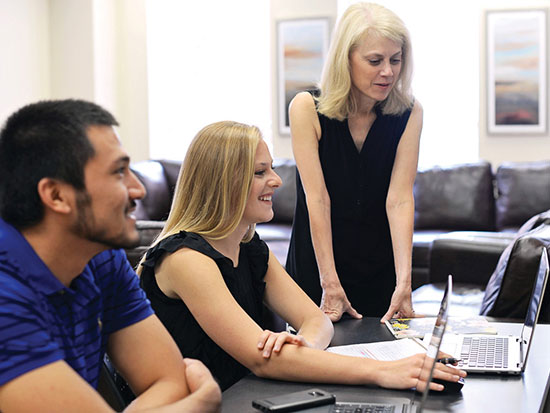 Nancy Wingo, Ph.D. (right), assistant professor in the Department of Acute, Chronic and Continuing Care Nursing, works with Solution Studios students Ali El-Husari and Paige Severino in this photo from 2018. The new COVID-19-specific version of the platform developed by Wingo and Joel Berry, Ph.D., associate professor in the Department of Biomedical Engineering, aims to focus bright students and subject matter experts on problems identified by front-line clinical staff.In the best of times, hospitals are filled with people facing challenging situations, and these certainly are not the best of times. So what better time to launch a COVID-19-specific version of a platform proven to help? Anyone can go to c19.solutionstudios.org to post a clinical problem — or volunteer to help solve one or more.
Nancy Wingo, Ph.D. (right), assistant professor in the Department of Acute, Chronic and Continuing Care Nursing, works with Solution Studios students Ali El-Husari and Paige Severino in this photo from 2018. The new COVID-19-specific version of the platform developed by Wingo and Joel Berry, Ph.D., associate professor in the Department of Biomedical Engineering, aims to focus bright students and subject matter experts on problems identified by front-line clinical staff.In the best of times, hospitals are filled with people facing challenging situations, and these certainly are not the best of times. So what better time to launch a COVID-19-specific version of a platform proven to help? Anyone can go to c19.solutionstudios.org to post a clinical problem — or volunteer to help solve one or more.
Solution Studios was born four years ago in the UAB Science and Technology Honors program and the School of Nursing, when Joel Berry, Ph.D., associate professor in the Department of Biomedical Engineering, and Nancy Wingo, Ph.D., assistant professor in the Department of Acute, Chronic and Continuing Care Nursing, were looking for a better way "to teach STEM students to innovate around unsolved clinical problems," Berry said. Their idea: set up a matchmaking service “that brings together stakeholders and bright students just waiting to jump in and help.”
Helping to make those matches is the third member of the team: Kristen Noles, DNP, education manager in UAB Medicine’s Clinical Practice Transformation department. Opportunities are everywhere, Noles said. The Clinical Practice Transformation team “is focused on teaching front-line staff how to do simple problem-solving and initiate rapid-improvement cycles,” Noles explained. “We educate, empower and engage to drive change.” The Clinical Practice Transformation team recently concluded a qualitative analysis of more than 500 suggestions from interviews with front-line health care workers. “There are a ton of communication challenges,” Noles said. A few include “reducing patient anxiety around PPE, figuring out how to optimize interprofessional collaboration when we’re not in the same place and negotiating this new balancing act between caring for patients and their families who can’t visit.” Integrating new technologies into care “is another big one,” Noles said.
(Story continues below box.)
‘A special opportunity’
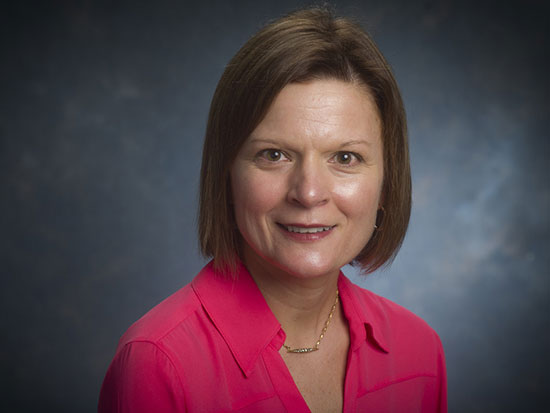 Kristen Noles, DNP, education manager in UAB Medicine’s Clinical Practice Transformation department, helps connects Solution Studios students with clinical problems from the front lines. With COVID-19, "there are a ton of communication challenges," she said.These are exactly the types of problems that Solution Studios can help solve, Berry said. The effort has drawn the attention of President Ray Watts, who established summer scholarships a few years ago to help undergraduates in Solution Studios “do a deep dive on specific problems,” Berry said. “Collaborations like this make UAB a great place, and this one gives us a special opportunity,” Watts noted at the time. “The ability to think as biomedical engineers do with real clinical problems is a very creative and unique situation. As soon as I heard about Solution Studios, I wanted to make sure we were doing everything possible to support these students and clinicians.”
Kristen Noles, DNP, education manager in UAB Medicine’s Clinical Practice Transformation department, helps connects Solution Studios students with clinical problems from the front lines. With COVID-19, "there are a ton of communication challenges," she said.These are exactly the types of problems that Solution Studios can help solve, Berry said. The effort has drawn the attention of President Ray Watts, who established summer scholarships a few years ago to help undergraduates in Solution Studios “do a deep dive on specific problems,” Berry said. “Collaborations like this make UAB a great place, and this one gives us a special opportunity,” Watts noted at the time. “The ability to think as biomedical engineers do with real clinical problems is a very creative and unique situation. As soon as I heard about Solution Studios, I wanted to make sure we were doing everything possible to support these students and clinicians.”
Watts “also supported us to fund a web-based platform to allow clinicians to post their unsolved problems the same way you would post on Facebook,” Berry said. “In the context of our classes, Nancy and I get our students to log on and rally around problems: reading literature, identifying and interviewing stakeholders and really coming up with a solution to those problems.” The Solution Studios team has seen “some amazing things come out of this,” Berry said.
| Collaboration — defined as “trust[ing] each other and work[ing] cooperatively across disciplinary boundaries” is one of UAB’s seven shared values. |
During the spring semester, Wingo had a student team who chose to work on badge contamination — “the problem of ID badges getting contaminated and possibly causing infection,” she said. “They chose this before the COVID crisis, but of course, COVID made it even more interesting.” Inspired by the firefighter outfit owned by the son of a member of the team, “the group explored how putting a sewn-in plastic covering on scrubs might make a difference in badge contamination,” Wingo said. “It's a common-sense approach that could work if they could figure out how to scan everything from the badge.”
Students also have developed a wearable device that can sense blood pressure, temperature and oxygen saturation simultaneously. “There’s nothing like it on the market,” Berry said. “In an ICU, people are hooked up to all these wires. This removes some of that tangle. The students 3D-printed a prototype and devised a protocol and submitted an intellectual property disclosure with UAB.”
This past summer, the focus of the scholarship project was hospital sepsis. Students created a virtual reality training system to help hospital staff recognize the onset of infection as early as possible. “We now have 10 other universities beta-testing the software around the United States, and the city of Copenhagen is testing it for a network of hospitals,” Berry said.
Take the COVID challenge
David Rogers, M.D., chief wellness officer for UAB Medicine and senior associate dean of faculty affairs and professional development in the School of Medicine, thought that the Solution Studios platform could be a great way to connect clinicians who have problems with a diverse community of students and experts who could help create solutions.
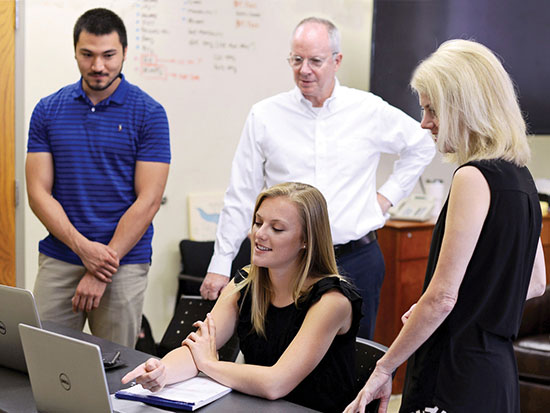 “Anyone can go on and sign up to post a problem or find a problem that they want to participate in attempting to solve,” said Berry (center).“In the preparation for the surge of COVID-19 patients, it was clear that we needed a way to innovate to address challenges related to provider safety,” Rogers said. “UAB has a great advantage in having a large group of interested students and content experts, and Solution Studios seemed like the perfect way to connect people with problems with others who had the expertise to help.” He reached out to Berry, and the group responded quickly to create a special COVID-19 instance of Solution Studios at c19.solutionstudios.org.
“Anyone can go on and sign up to post a problem or find a problem that they want to participate in attempting to solve,” said Berry (center).“In the preparation for the surge of COVID-19 patients, it was clear that we needed a way to innovate to address challenges related to provider safety,” Rogers said. “UAB has a great advantage in having a large group of interested students and content experts, and Solution Studios seemed like the perfect way to connect people with problems with others who had the expertise to help.” He reached out to Berry, and the group responded quickly to create a special COVID-19 instance of Solution Studios at c19.solutionstudios.org.
“Anyone can go on and sign up to post a problem or find a problem that they want to participate in attempting to solve,” Berry said. The site already has attracted several areas where better solutions would help, including widespread automatic cleaning and dialysis. Berry said he envisions engineers, scientists and other faculty contributing to solutions, along with the STEM honors students that he and Wingo work with regularly.
The team is eager for more problems. Sharing them is simple, Berry explained. “The main feature of the site is a giant green ‘Post a Problem’ button,” he said. Posters explain the problem or challenge they are experiencing, the patients affected, the benefit if the problem is solved and information about clinical partners. As the problem is distributed to working teams, posters can track progress toward a solution in the same way online shoppers track packages or pizza chains let customers watch their pizza as it moves toward delivery.
“We’re about to release these problems to a population of bright undergraduates who are eager to get at them,” Berry said. “We’re ready to unleash the talent of UAB faculty and staff as well.”
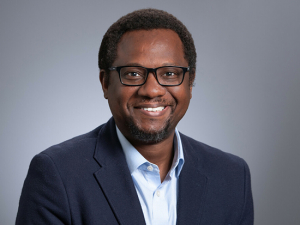

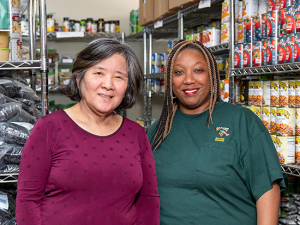
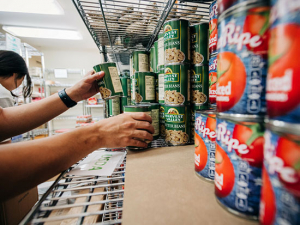
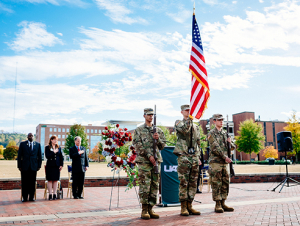
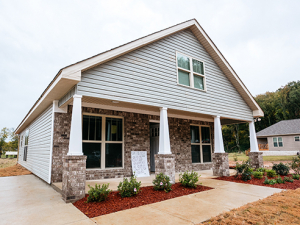
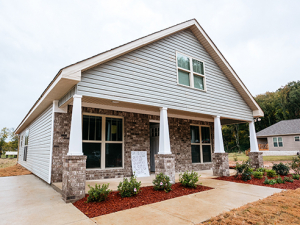

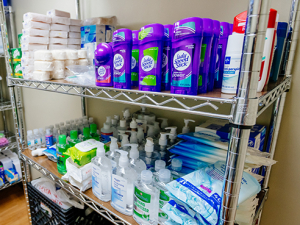
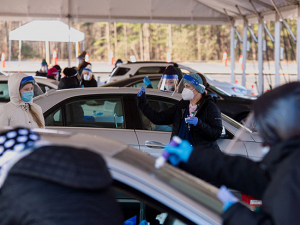
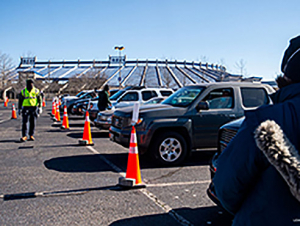


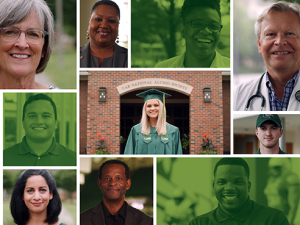
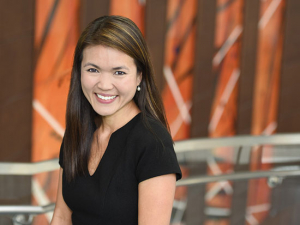
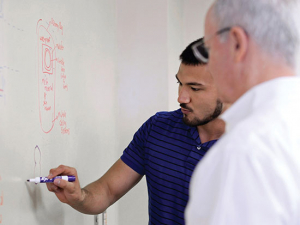
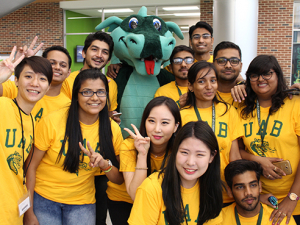
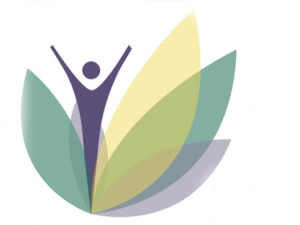
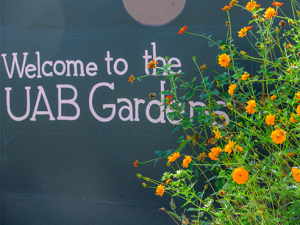

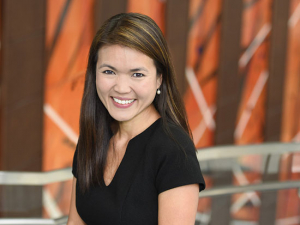
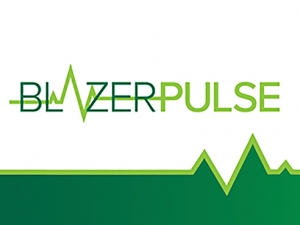
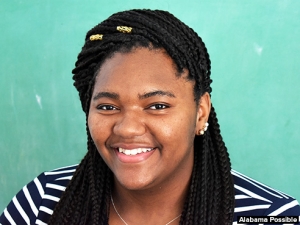
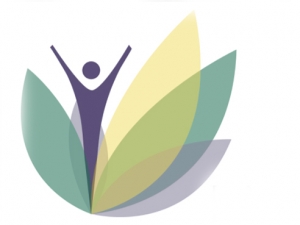

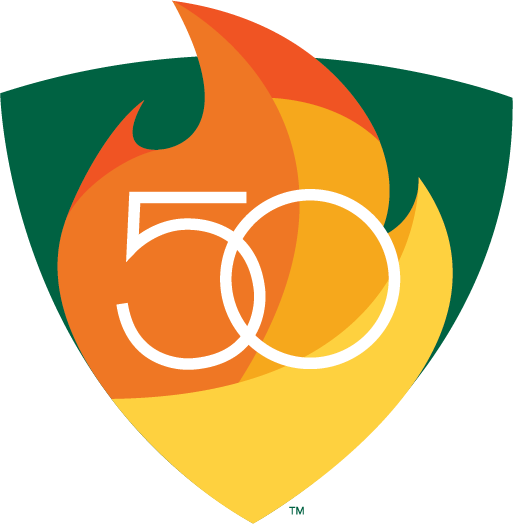 Help the Graduate School and Staff Council provide much-needed items to the Ronald McDonald House and Birmingham-area schools.
Help the Graduate School and Staff Council provide much-needed items to the Ronald McDonald House and Birmingham-area schools.

